"Remember Your New Name "
Surviving the Holocaust under a False Identity
Iza Harnik (Israela Hargil) survived under a false identity while living with the Miklaszewski family in Brody and Krakow
Iza Harnik was born in 1938 in Brody, Poland, the only child of Kalman-Karl and Elsa née Kahana. Iza's parents were both teachers and musicians steeped in Polish culture but with Zionist affiliations. Kalman taught at the Jewish school, directed the "Zamir" music club and conducted the club's orchestra. Kalman played the violin and Elsa the piano.
On 20 September 1939, the Red Army occupied Brody. The city's factories and shops were nationalized, and the Jewish community committee was disbanded. In early January 1940, several wealthy merchants and prominent Jewish community activists were exiled to Russia, joined by some of the many refugees who had reached Brody in October-November 1939 from Nazi-occupied Western Poland.On 22 June 1941, the Germans invaded the Soviet Union. Only a few citizens managed to flee from Brody to deeper in the USSR with the "evacuation", and 8 days later the city was occupied. Kalman, Elsa, three-year-old Iza and Elsa's mother Sheindel hid for those 8 days in the cellar of a bombed-out house. Some two weeks after the occupation of Brody, the Germans seized approximately 250 Jewish men and women – teachers, pharmacists, lawyers, engineers, businessmen and others.
After interrogating and abusing them, they murdered them and threw their bodies into a lime pit near the cemetery. Elsa Harnik and her brother Shoylek Kahana, a pharmacist, were among the victims.
In January 1942, the Jews of Brody were confined in a ghetto. Iza was smuggled out of the ghetto and hidden with a Polish acquaintance of Kalman's, Jacenty Miklaszewski, and his wife Maria. Iza's grandmother Sheindel perished in the ghetto, and Kalman escaped and hid in a pit in a village near Brody, with Jacenty's assistance. Israela (Iza) recalls:
I learned the prayers… I wasn't allowed to say that I was Jewish, and this was at a very young age, I was three… I went over and over the details of my new life… My parents were killed when one of the villages was bombed, I survived and was brought to my relatives… I didn't call them Mother and Father, I called them Aunt and Uncle, and my name was Eva … I had to practice my name too.
Initially, Iza was allowed to play in the courtyard, but the neighbors suspected that Jacenty and Maria were sheltering a Jew, and fearing denunciation, they moved Iza to a friend of theirs. From there, she was transferred in a horse-drawn wagon, covered in straw, to a family with many children in the village. Once more under suspicion, she was moved again, this time to an elderly woman, who was a Volksdeutsche (ethnic German), and eventually returned to Jacenty and Maria in Brody. "I wasn't allowed to go out of the house. I couldn't be seen, I couldn't even go past the window," relates Israela (Iza). "I had to hide in the house." Iza used to stretch her legs and breathe some fresh air on short nocturnal trips to the courtyard together with Władysława, Jacenty and Maria's daughter who was four years her senior. They would walk around at night and talk.
Jacenty and Maria decided to leave Brody for Krakow with their daughter, and they took Iza with them. The night before their departure, they brought Iza to her father's hiding place. They asked her not to tell him about their leaving, fearing that he would want to keep her with him. Kalman eventually succeeded in fleeing from his hiding place, crossing the border and joining the ranks of the Red Army.
In Krakow, Iza was free to play with the children in the courtyard, under her assumed identity, and went to a kindergarten run by nuns. She understood from the adults and children around her that a Jew was something negative and terrible – hunchbacked, with a crooked nose, ugly and repulsive. The Jews murdered Jesus, she was told, they crucified him. Israela (Iza) relates:
I had no desire at all to belong to this [Judaism]… I have many good, beautiful memories of [the Christian] religion. We went to church every Sunday, we got dressed up, and the church was beautiful. The views were all aesthetic: lovely pictures, colorful windows, a quiet atmosphere, pleasant lighting… The priest, prayers, songs and organ all evoked positive associations within me. Everything was beautiful, and I was part of it. But there was always the dread…. of being found out to be Jewish.
Krakow was liberated by the Red Army in January 1945. Iza stayed with the Miklaszewskis and started school. One of her uncles, her mother's brother, who had immigrated to Eretz Israel (Mandatory Palestine) before the war, located her in Krakow, and wanted to take her back with him. He offered Jacenty money, but Jacenty declined, and promised Iza that she would stay with them. "I promised your father," he said, "That I wouldn't give you to anyone, only to him, if he survived." Kalman did survive, and came to Krakow to be reunited with his daughter, whom he hadn't seen for three years. Israela (Iza) recalls:
One day during recess they called me to the office and told me that someone, a relative, was waiting for me. He didn't know the way home, and wanted me to accompany him. I agreed. School ended, and I came out and saw a well-dressed man with a suitcase. A clean-shaven, nice man. He said hello to me, and started talking to me… He asked about my family… he patted me a little, and it felt natural to me… We came home, and they started shouting: Karl, Karl! Evaniu, this is your father! I was dumbstruck. I ran away and hid, I didn't want to go near him again.
In February 1946, Iza parted with the Miklaszewski family, and moved to Bielsko with her father, where she gradually became closer to him and started to acknowledge her Judaism. In 1948, Kalman and Iza immigrated to Israel via France. After a short period in Tel Aviv, Iza moved to Kibbutz Ramat Yohanan, where she changed her name to Israela. Kalman stopped playing music after the war. "As soon as he found out that my mother had been murdered by the Germans outside Brody, and he found out a long time later," says Israela, "He cut himself off from music, in sacrifice to his love for Mother." Four years after they arrived in Israel, Kalman passed away.
In 1955, Israela Harnik submitted Pages of Testimony to Yad Vashem in memory of her mother Elsa and other relatives. In 1982, Yad Vashem recognized Jacenty and Maria Miklaszewski and their daughter Władysława, as Righteous Among the Nations.
Israela studied art in London, Los Angeles and New York. Her work has been displayed at many exhibitions. She first started expressing her Holocaust memories artistically in her exhibition, "Photoerosion (2007)". In 2009, she displayed her exhibition, "Photoerosion II". Several of her artworks were donated to Yad Vashem's Museums Division. One of them, entitled "Chapel" is displayed in this exhibition.

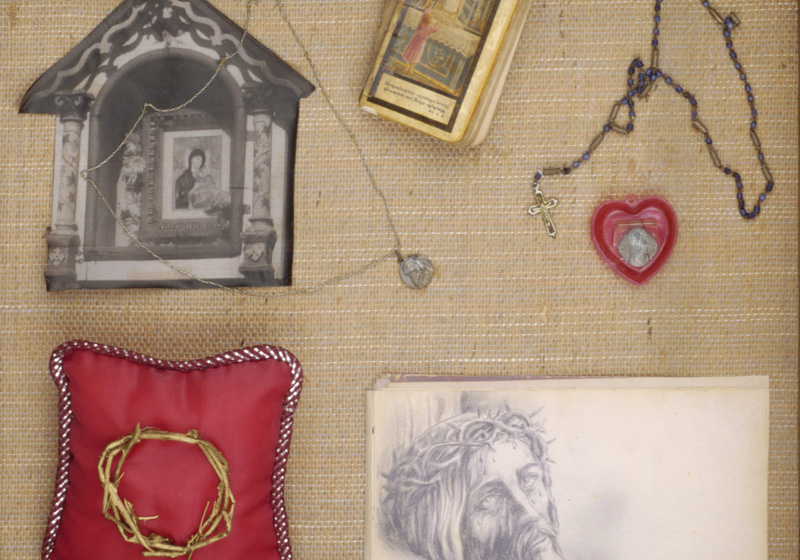
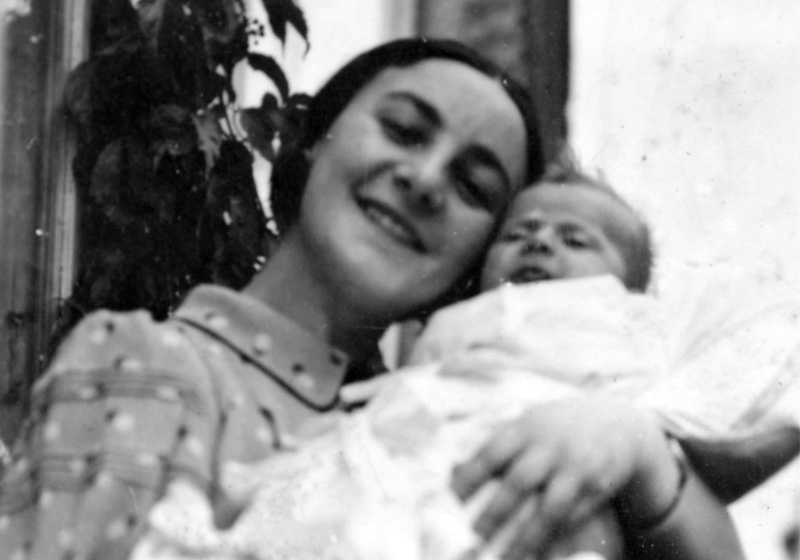
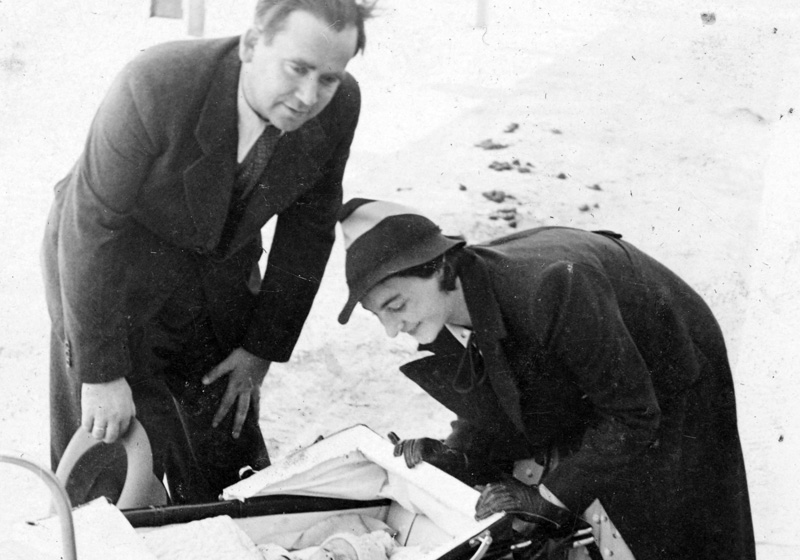
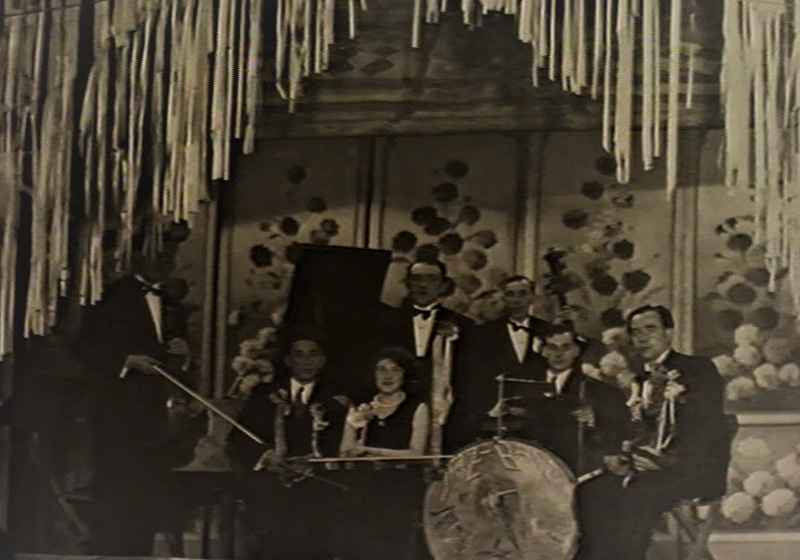
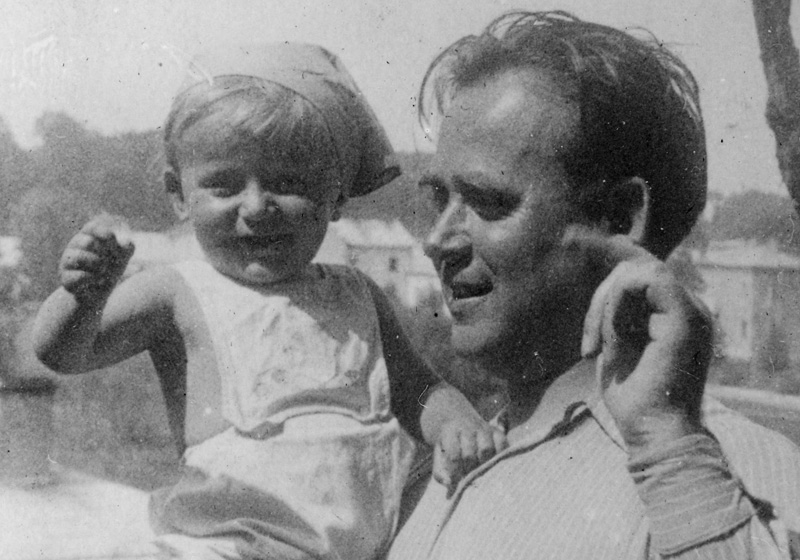
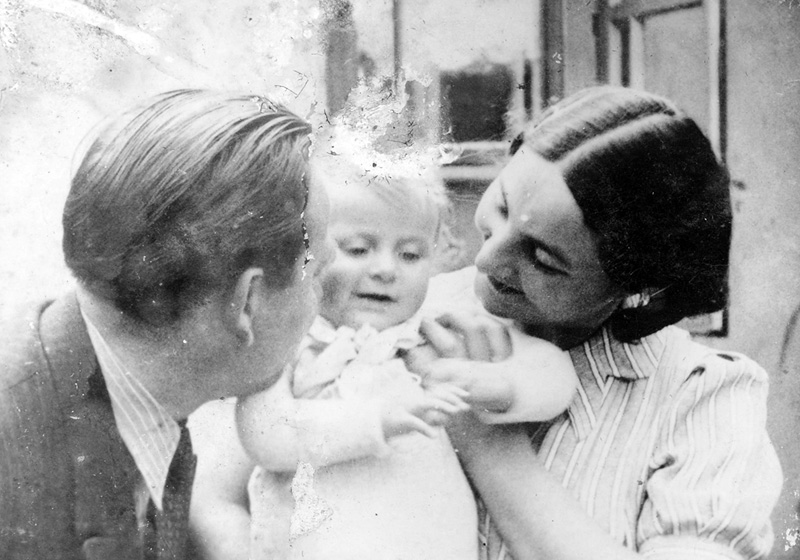
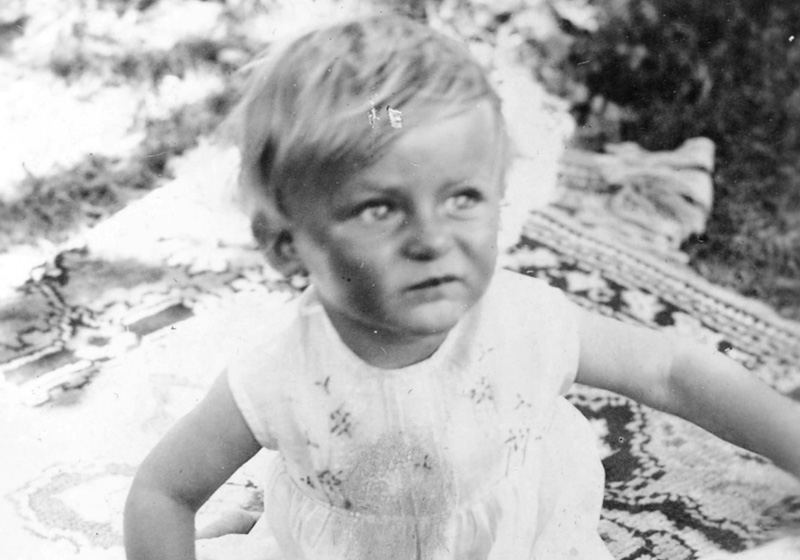
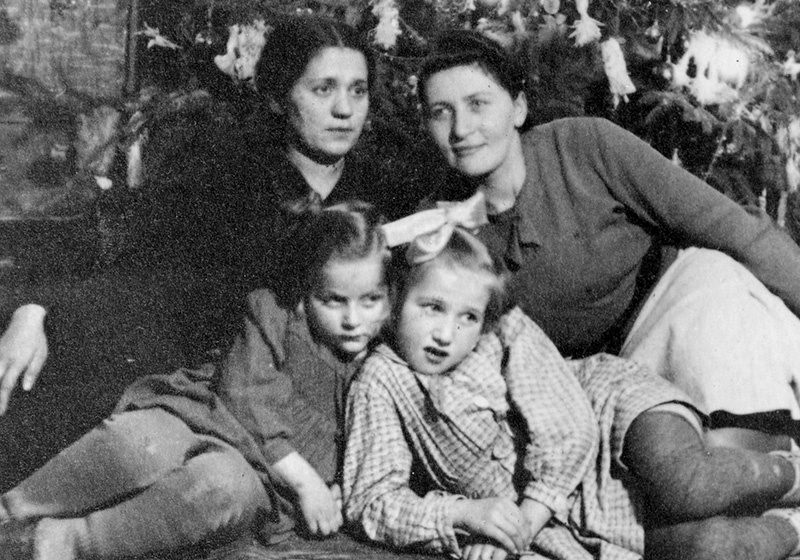
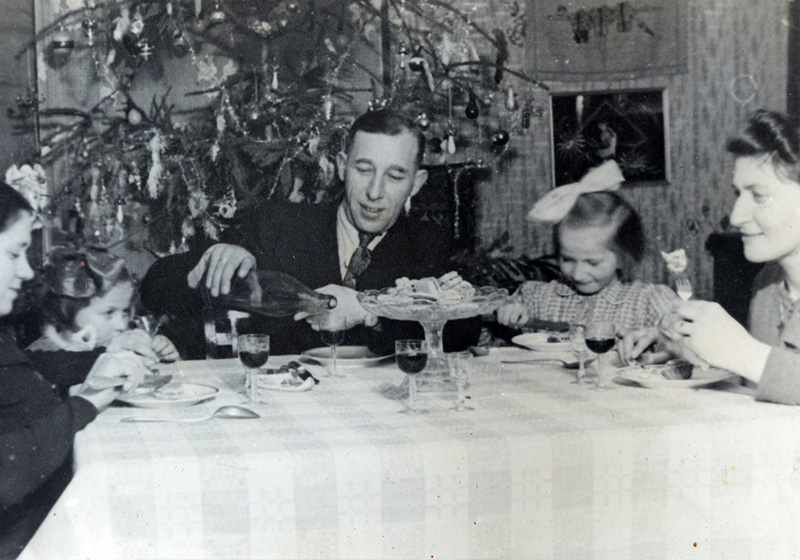
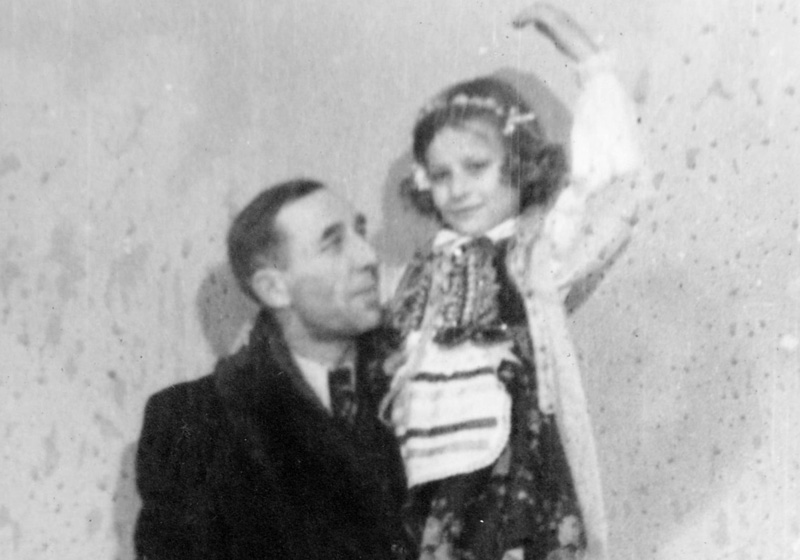
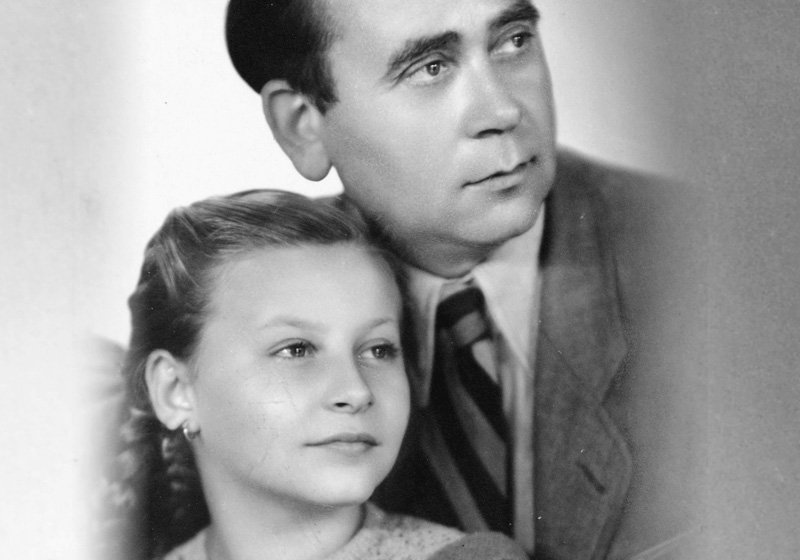
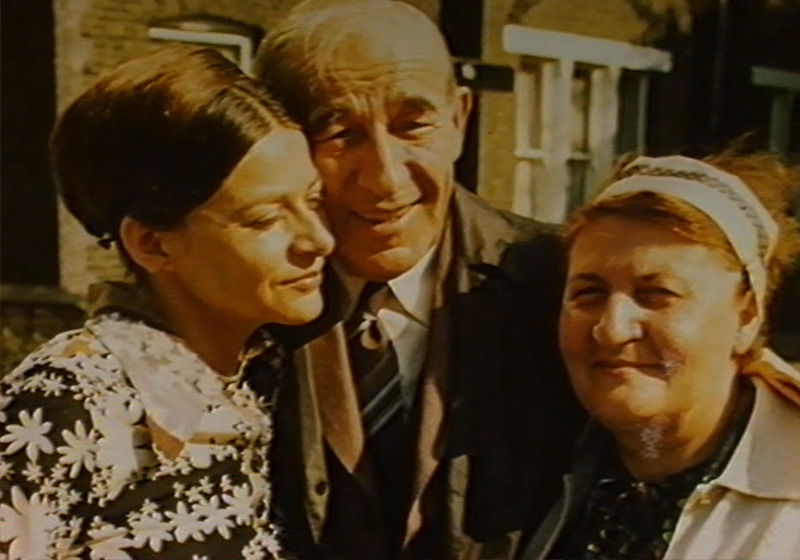 Israela Hargil (Iza Harnik) and her rescuers, Jacenty and Maria Miklaszewski. London, 1960
Israela Hargil (Iza Harnik) and her rescuers, Jacenty and Maria Miklaszewski. London, 1960